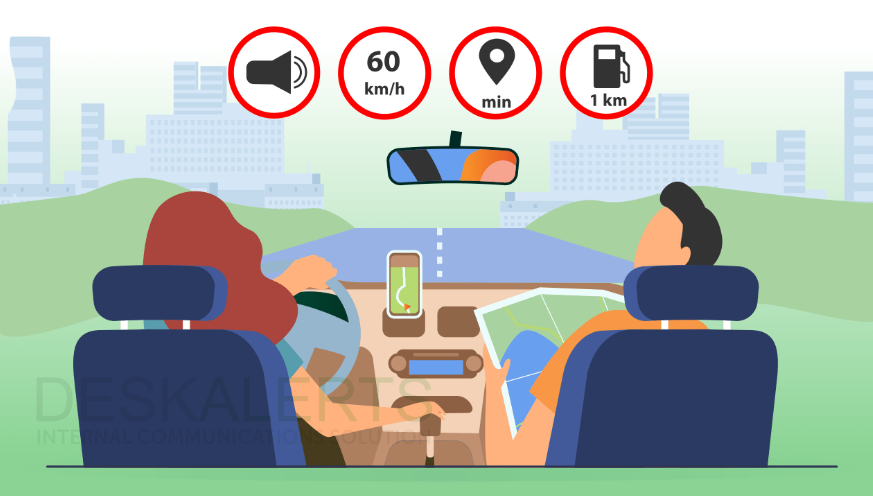How
to Create a Safe Driving Culture in Your Workplace
Introduction
One of the main categories in the premises of the industry
is incidents involving vehicles. The interaction between people and cars is
crucial to road safety. One of the leading causes of fatalities and injuries at
work are motor vehicle accidents. It is more crucial than ever to foster a
culture of safe driving at work due to the rising number of vehicles on the
road. In this article, we'll go over some ideas and tactics for fostering a
culture of defensive driving at work that will both keep your staff members
safe and help you meet your legal obligations
Create an extensive program for driver safety
All operators operating vehicles inside an industry
setting must be well-versed in defensive driving techniques. To promote safe
driving at work, you must have a comprehensive driver safety program. All
facets of driver safety, such as defensive driving techniques, vehicle upkeep,
and driver training, should be covered in this program. A clear mobile phone
use while driving policy and a zero-tolerance policy for driving while
intoxicated should also be part of the program. There are also devices for
monitoring driver sleep that help to detect and notify the driver when they are
feeling tired or sleepy
Encourage Driver Education
For your workplace to promote safe driving, driver
training is essential. Comprehensive driver education should be provided to all
employees who drive as part of their job duties. Safe driving procedures, defensive
driving tactics, and the significance of vehicle maintenance should all be
covered in this training. Each driver's skills and abilities should be
evaluated as part of the training to determine what areas require more
instruction
Maintaining a vehicle routinely
To ensure the health of the vehicle, routine vehicle
inspections must be performed using a comprehensive checklist. The qualified
representative will conduct the fitness assessment. To guarantee the safety of
your fleet of vehicles, regular vehicle maintenance is necessary. It is crucial
to perform routine inspections, such as fluid, brake, and tire checks. Any
problems found during these inspections need to be fixed right away
Apply safe driving techniques
Only drivers with a current driver's license for that type
of vehicle are permitted, certified, and authorized to operate that type of
vehicle inside an industry workplace. To establish a safe driving culture in
your workplace, it is essential to enforce safe driving habits. This can
involve encouraging people to buckle up, follow traffic regulations, and drive
without being distracted. A clear policy on safe driving procedures should be
part of your driver safety program, and you should consistently enforce this
policy
Driver performance monitoring
The stimulators are used for training and monitoring the
operator skills because technology aids us in every aspect of life. To make
sure that your drivers are following safe driving procedures, it is imperative
to monitor driver performance. This may involve the use of telematics tools
that monitor the speed, braking, and acceleration of drivers. You can also
carry out routine driver evaluations to pinpoint the areas that require more
instruction
Recognize defensive driving techniques
Establishing a safe driving culture in your workplace
requires recognizing safe driving behavior. You can accomplish this by
rewarding staff members who practice safe driving habits, such as observing
traffic regulations and putting a stop to cell phone use while driving. This
will assist in motivating the drivers of the vehicles and may include bonuses,
incentives, or recognition programs
Promoting Open Communication
For your workplace to foster a culture of safe driving,
open communication is crucial. Your staff members should feel at ease bringing
up any safety issues they may have, such as risky driving habits or poor
vehicle maintenance. Additionally, you should hold regular safety meetings to
go over any issues with safety and to give updates on your program for
improving driver safety
Conclusion
To ensure employee safety and fulfill your safety
obligations, it's critical to foster a culture of safe driving at work. This
can be done by creating a thorough program for driver safety, supporting driver
education, encouraging regular vehicle maintenance, enforcing safe driving
habits, tracking driver performance, identifying safe driving behavior, and
promoting open communication. You can establish a culture of safety in your
workplace that will protect your employees and help you meet your safety
objectives by implementing the advice and techniques listed above


